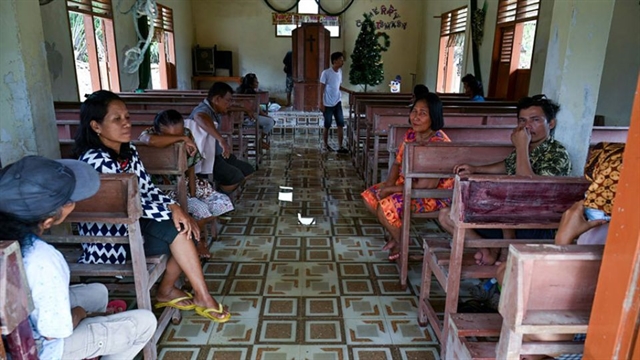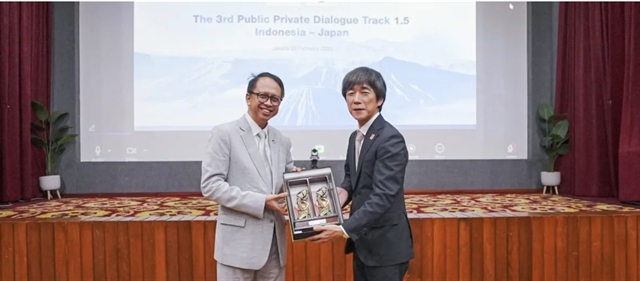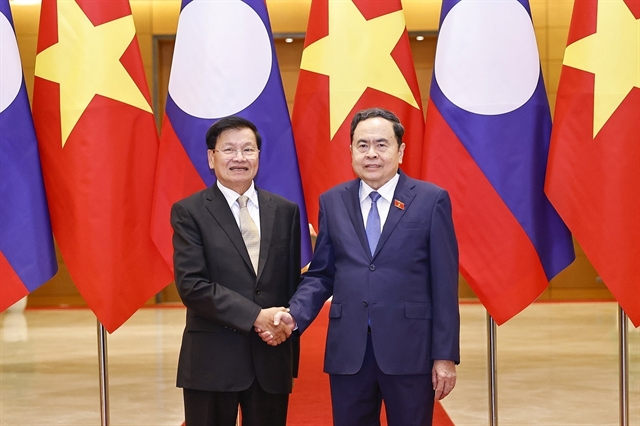 World
World


|
| Deputy for the coordination of international economic cooperation at the Coordinating Ministry for Economic Affairs, Edi Prio Pambudi (left), and deputy commissioner for international affairs at the Japanese Ministry of Economy, Trade, and Industry, Masanori Tsuruda (right), after signing an LoI on cooperation for developing the Kayan hydropower plant, in Jakarta on Wednesday (March 5, 2025). Photo antanranews.com |
JAKARTA - Indonesia's Coordinating Ministry for Economic Affairs and the Japanese Ministry of Economy, Trade, and Industry (METI) have signed a letter of intent (LoI) on cooperation in developing the Kayan hydropower plant in North Kalimantan, the largest of its kind in Southeast Asia, with a total investment of US$17.8 billion.
For Indonesia, the Kayan hydropower plant is not just an infrastructure project within the framework of the Asia Zero Emission Community but also a strategic investment for Indonesia’s energy security and decarbonisation efforts, Deputy Minister for the Coordination of International Economic Cooperation Edi Prio Pambudi said.
He emphasised that as a strategic partner, Japan will help Indonesia implement energy transition projects and achieve net-zero emissions by 2060.
Therefore, the Indonesian government has urged Japan to strengthen cooperation in implementing practical, scalable, and inclusive energy transition projects in the country.
Meanwhile, Deputy Commissioner for International Affairs at the METI Masanori Tsuruda said that the LoI on the development of the Kayan hydropower plant needs to be immediately followed up by both governments.
Although the development of the plant is challenging, he is confident that the good bilateral relations between Japan and Indonesia are a strong foundation for the development of this project.
Once completed, the hydropower plant, with a capacity of 9,000 MW, will supply renewable energy to Indonesia's largest green industrial park in Tanah Kuning, North Kalimantan. It will also support Indonesia's target of bringing the share of renewable energy in the national energy mix to 23 per cent by 2025 and 31 per cent by 2050, as a part of its commitment to a sustainable energy future. VNS





 Brandinfo
Brandinfo